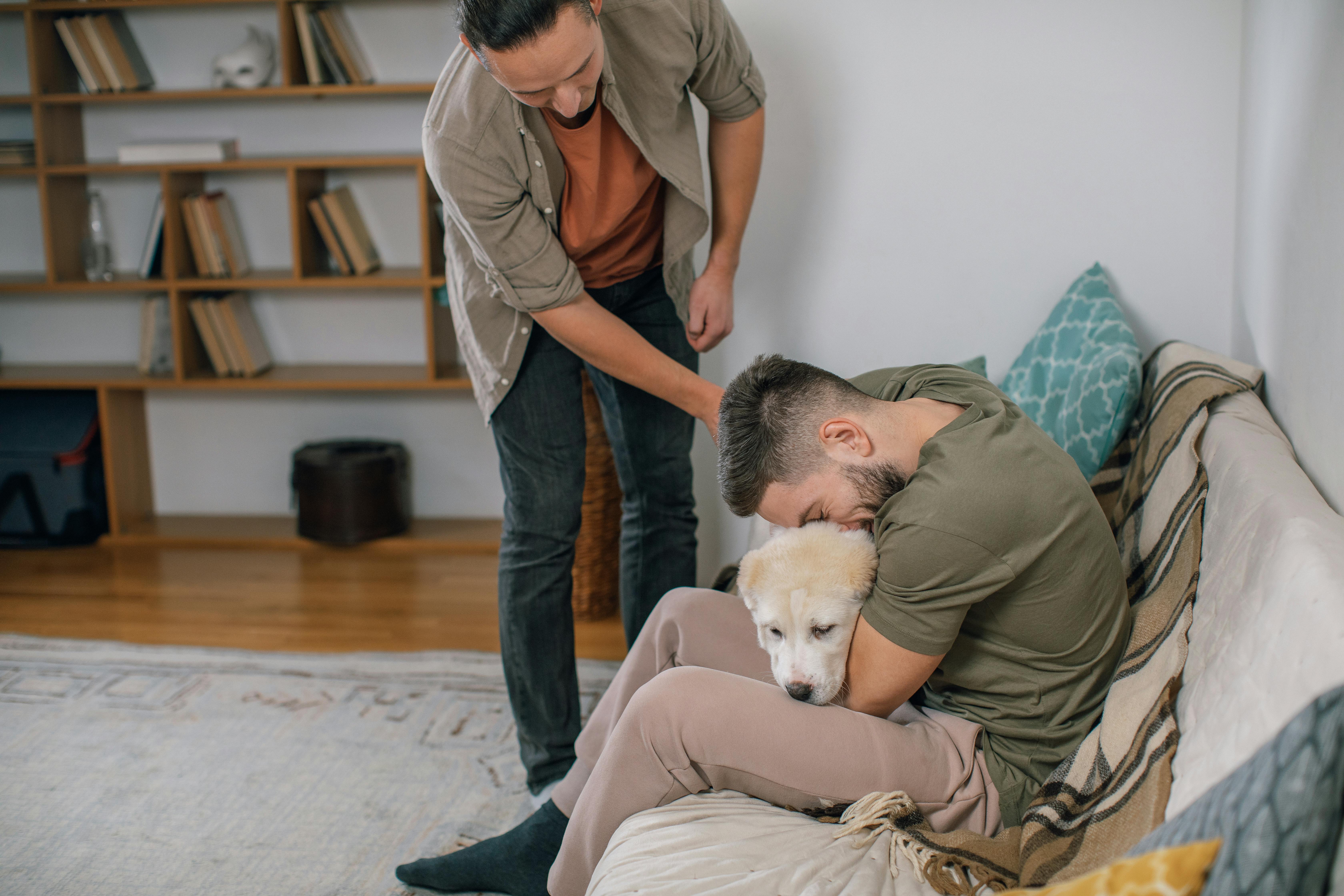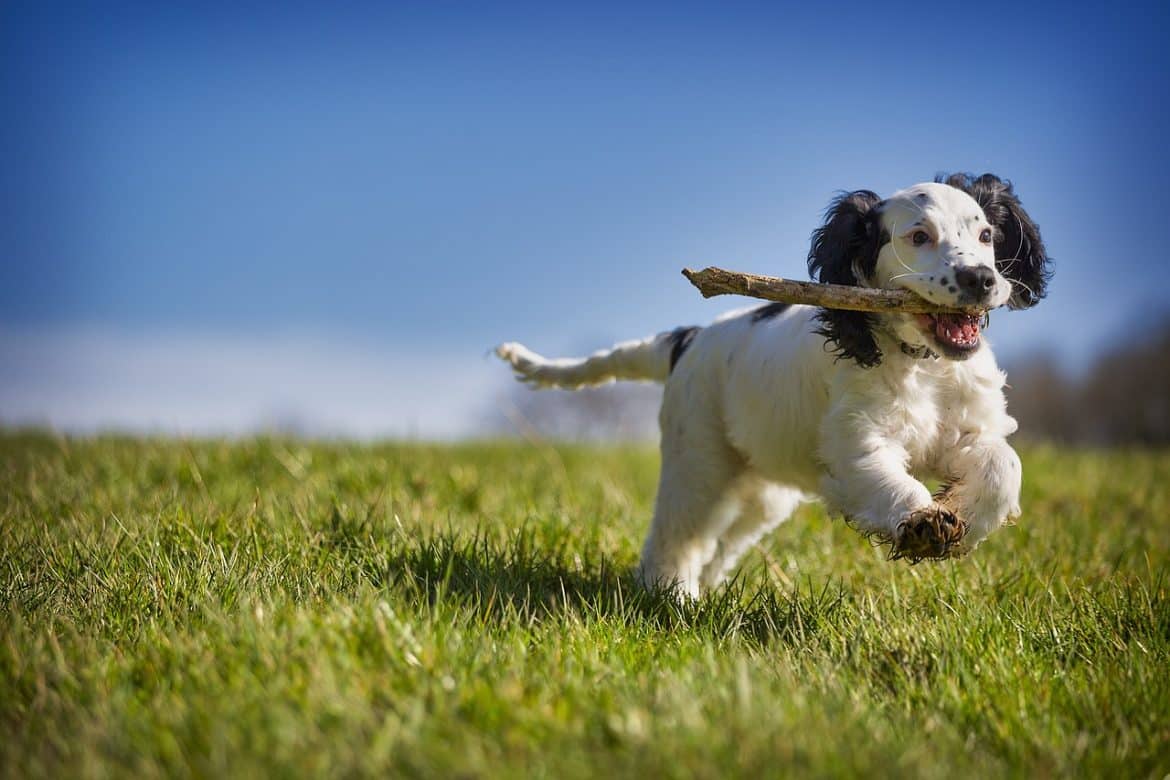Have you ever wondered why puppies love to nibble on your ears during playtime? In this article, we explore the fascinating world of puppy behavior and uncover the reasons behind this seemingly adorable yet sometimes pesky habit. From exploring their environment to developing their social skills, we delve into the various factors that contribute to puppies' ear-biting tendencies. So, if you've ever been on the receiving end of those tiny teeth, read on to gain a better understanding of your furry friend's playful antics.
The Nature of Puppy Behavior
When it comes to understanding and raising a puppy, it's important to delve into their natural behaviors and instincts. One common behavior that many puppy owners encounter is ear-biting. This behavior can be perplexing and even painful at times, but it's essential to recognize that it is often a normal part of puppy development. In this article, we will explore the nature of puppy behavior and delve deeper into the world of ear-biting.
Puppy teething and exploring their environment
Puppies, just like human babies, go through a teething phase. This is a normal part of their development, and it usually starts around three to four months of age. During this time, puppies experience discomfort and irritation in their mouths, and chewing becomes a necessary instinct to alleviate the discomfort. As puppies explore their environment, they may discover that their sharp little teeth provide relief when they bite into objects.
The natural instinct to chew and bite
Chewing and biting are innate behaviors for puppies. Just like human infants, they use their mouths to explore and interact with the world around them. Puppies lack the dexterity of their adult counterparts and rely on their mouths to grasp and manipulate objects. It's important to understand that puppies don't bite with malicious intent but rather as a natural instinct.
Puppy play and socialization
One of the main reasons puppies bite ears, or any other body part for that matter, is during play. Play is an important aspect of a puppy's life, and it serves several purposes. Play helps puppies develop their motor skills, learn proper social interaction, and establish their place within their litter or human family. During play, puppies engage in mock fights, chase, and wrestle with their littermates or playmates, which often involves gentle biting and nibbling.
Understanding the Ear-Biting Behavior
Now that we have explored the nature of puppy behavior, let's take a deeper look into the reasons behind ear-biting specifically.
The allure of ears for puppies
Puppies find ears particularly appealing for various reasons. Ears are soft, easily accessible, and provide sensory stimulation for the puppies. The puppy may be attracted to the texture, smell, or movement of the ears. Additionally, ears are often more prominent and exposed than other body parts, making them an easy target for playful nibbles.
The role of ear-biting in play
When puppies engage in play, ear-biting serves as a form of communication and interaction. It is a way for them to establish dominance, display affection, or simply initiate playfulness with their littermates or human companions. Ear-biting is often a gentle behavior, accompanied by wagging tails and playful body language.
Teething and ear discomfort
As mentioned earlier, puppies go through a teething phase, which can result in discomfort and irritation in their mouths. Similar to how teething infants may chew on objects to alleviate the discomfort, puppies may also bite ears as a means of finding relief from their sore gums. The act of biting provides pressure and stimulation that can temporarily alleviate their discomfort.
Seeking attention or initiating interaction
In some situations, puppies may bite ears as a way of seeking attention or initiating interaction with their owners or other dogs. By biting on ears, they are capturing our attention and inviting us to engage in play or provide them with affection. It's essential to understand that puppies do not have the same understanding of personal space as humans, and their biting behavior in these instances is typically rooted in a desire for social interaction.

This image is property of images.pexels.com.
Preventing and Redirecting Ear Biting
While ear-biting behavior is often a normal part of puppy development, it's important to establish boundaries and redirect this behavior when necessary. Here are some strategies to prevent and redirect ear biting:
Providing appropriate chew toys
One effective way to prevent ear-biting behavior is to provide puppies with appropriate chew toys. Chew toys give puppies an outlet for their natural instinct to chew while protecting your ears or other body parts from their sharp teeth. Make sure to choose chew toys that are safe and durable to withstand strong puppy jaws.
Establishing consistent rules and boundaries
Consistency is key when it comes to training puppies. By establishing consistent rules and boundaries, you can teach your puppy what is acceptable behavior and what is not. Set clear guidelines and enforce them consistently, so your puppy understands that ear-biting is not an appropriate behavior.
Redirecting behavior with positive reinforcement
When you notice your puppy engaging in ear-biting behavior, it's important to redirect their attention to a more appropriate outlet. Offer them a toy or treat that they can chew on instead of ears. By rewarding their desired behavior with positive reinforcement, such as praise or treats, you can encourage them to chew on appropriate items instead of ears.
Engaging in adequate playtime and exercise
Puppies have a lot of energy, and if they are not adequately stimulated, they may resort to inappropriate behaviors such as excessive ear-biting. Make sure to engage in regular playtime and exercise with your puppy to help them burn off excess energy. This can include games of fetch, interactive toys, or even playdates with other puppies.
The Importance of Socialization
Socialization plays a crucial role in shaping a puppy's behavior and temperament. By exposing your puppy to different dogs, people, and environments, you can help them become well-rounded and comfortable in various situations. Here are some key points to consider when it comes to socializing your puppy:
Socializing puppies with other dogs
Introducing your puppy to other dogs is crucial for their social development. It exposes them to different sizes, breeds, and temperaments, which helps them learn proper canine social cues. Supervised playdates with well-socialized dogs can provide valuable learning opportunities for your puppy.
Introducing puppies to different people and environments
It's important to expose your puppy to a wide range of people, including children, adults, and strangers. This helps them become comfortable and confident in diverse social settings. Similarly, exposing them to different environments, both indoors and outdoors, helps them adapt to new sights, sounds, and smells.
Teaching bite inhibition
Bite inhibition refers to a puppy's ability to control the force of their bite. This skill is crucial in preventing accidental injuries during play or interaction. While playing with your puppy, gently yelp or vocalize if they bite too hard. This mimics the response they would receive from a littermate, and it teaches them to be more gentle with their mouths.
By actively socializing your puppy, you can help shape their behavior and ensure they grow into well-adjusted and friendly adult dogs.

This image is property of images.pexels.com.
Dealing with Teething and Discomfort
Teething can be a challenging time for both puppies and their owners. It's important to recognize the signs of teething and take steps to alleviate their discomfort. Here are some tips for dealing with teething and minimizing ear-biting behavior:
Recognizing teething signs
Puppies may exhibit several signs of teething, including increased chewing, drooling, swollen gums, and sometimes even slight bleeding. You may also notice that they are more prone to biting behaviors during this time. By recognizing these signs, you can better understand their behavior and respond appropriately.
Alleviating teething discomfort
There are several ways to alleviate your puppy's teething discomfort. Providing them with appropriate chew toys, especially ones designed to be frozen, can help soothe their sore gums. You can also wet a washcloth and freeze it for them to chew on. Additionally, there are commercial teething gels or sprays available that can provide temporary relief.
Consulting with a veterinarian
If you are concerned about your puppy's teething or if they seem to be in significant discomfort, it's always best to consult with a veterinarian. They can provide guidance, recommend specific teething toys or products, and ensure that there are no underlying issues causing your puppy's discomfort.
Avoiding Reinforcement of Ear-Biting Behavior
It's crucial to avoid inadvertently reinforcing ear-biting behavior. Here are some important points to remember when it comes to ear-biting:
Refraining from encouraging rough play
While some rough play is normal for puppies, it's important to discourage behaviors that may escalate into aggression or excessive ear-biting. Avoid encouraging or participating in rough play that involves excessive biting or nipping. Set boundaries and intervene if play starts to become too intense.
Avoiding aggressive or fearful responses
It's important to respond appropriately if your puppy bites your ears or exhibits other unwanted behaviors. Responding with aggression or fear can confuse and encourage the behavior further. Instead, calmly redirect their attention to an appropriate chew toy or offer a gentle but firm "no" to discourage the behavior.

This image is property of images.pexels.com.
Positive Reinforcement in Training
Positive reinforcement is a powerful tool in training puppies. By rewarding desired behaviors with treats, praise, or play, you can encourage your puppy to repeat those behaviors. When it comes to ear-biting behavior, positive reinforcement can be used in the following ways:
Using treats and rewards for desired behaviors
Whenever your puppy demonstrates appropriate chewing behavior, such as chewing on their toys instead of ears, offer them treats and praise. This reinforces their understanding that chewing on appropriate items leads to positive rewards.
Ignoring and redirecting unwanted behaviors
When your puppy engages in ear-biting behavior, it's important not to reinforce it with attention or physical contact. Instead, redirect their attention to an appropriate chew toy or engage them in an alternative activity. By ignoring the unwanted behavior and redirecting them towards desired behaviors, you are teaching them that ear-biting does not lead to positive outcomes.
Teaching Bite Inhibition
Bite inhibition is an essential skill for puppies to learn. It helps them understand the importance of using a gentle bite force during play and interaction. Here's how you can teach bite inhibition:
The importance of bite inhibition
Bite inhibition is crucial because, as your puppy grows, they will interact not only with humans but also with other dogs and various animals. Teaching them to control their bite force helps prevent accidental injuries and ensures their behavior remains appropriate in different social settings.
Progressive desensitization and controlled play sessions
To teach bite inhibition, engage in controlled play sessions with your puppy. Start by playing gently and monitoring their bite force. If they bite too hard, let out a yelp or say "ouch" to signal that they have crossed a boundary. Pause the play session momentarily, and if your puppy responds by softening their bite, resume playing. Continue this process, gradually desensitizing your puppy to the appropriate bite force.
Recognizing Warning Signs and Seeking Professional Help
While ear-biting behavior is usually a normal part of puppy development, there are instances where it can become problematic. It's important to recognize warning signs and seek professional help when needed. Here are some signs that ear-biting may require further attention:
Knowing when ear-biting becomes problematic
If your puppy's ear-biting behavior becomes aggressive, excessive, or causes injury, it may be a sign that it has escalated beyond normal play. Additionally, if your puppy shows signs of fear or anxiousness when engaging in ear-biting or displays any other concerning behaviors, it's essential to address the issue promptly.
Consulting with a professional dog trainer or behaviorist
If you are unsure how to address and manage your puppy's ear-biting behavior, or if you have concerns about their overall behavior and socialization, it's wise to consult with a professional dog trainer or behaviorist. They can assess the situation, provide guidance tailored to your specific circumstances, and help you create a training plan to address the issue effectively.
Conclusion
Understanding puppy behavior, including ear-biting, is crucial for any puppy owner. By recognizing and appreciating the nature of puppy behavior, we can respond appropriately, prevent unwanted ear-biting, and encourage desired behaviors. Through socialization, positive reinforcement, and teaching bite inhibition, we can raise well-adjusted and happy puppies. Remember, if you have any concerns about your puppy's behavior, seeking professional help is always a wise decision. Enjoy the journey of raising your puppy, embracing their curious nature, and nurturing their growth into a lifelong companion.


